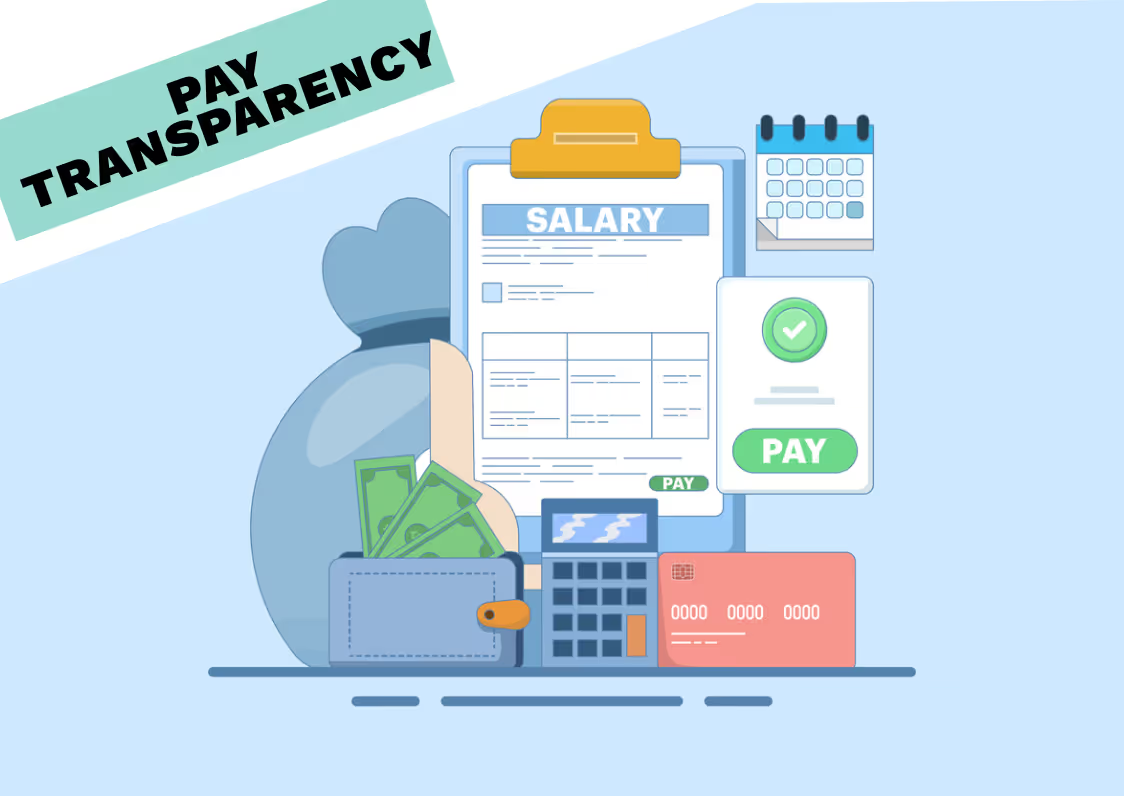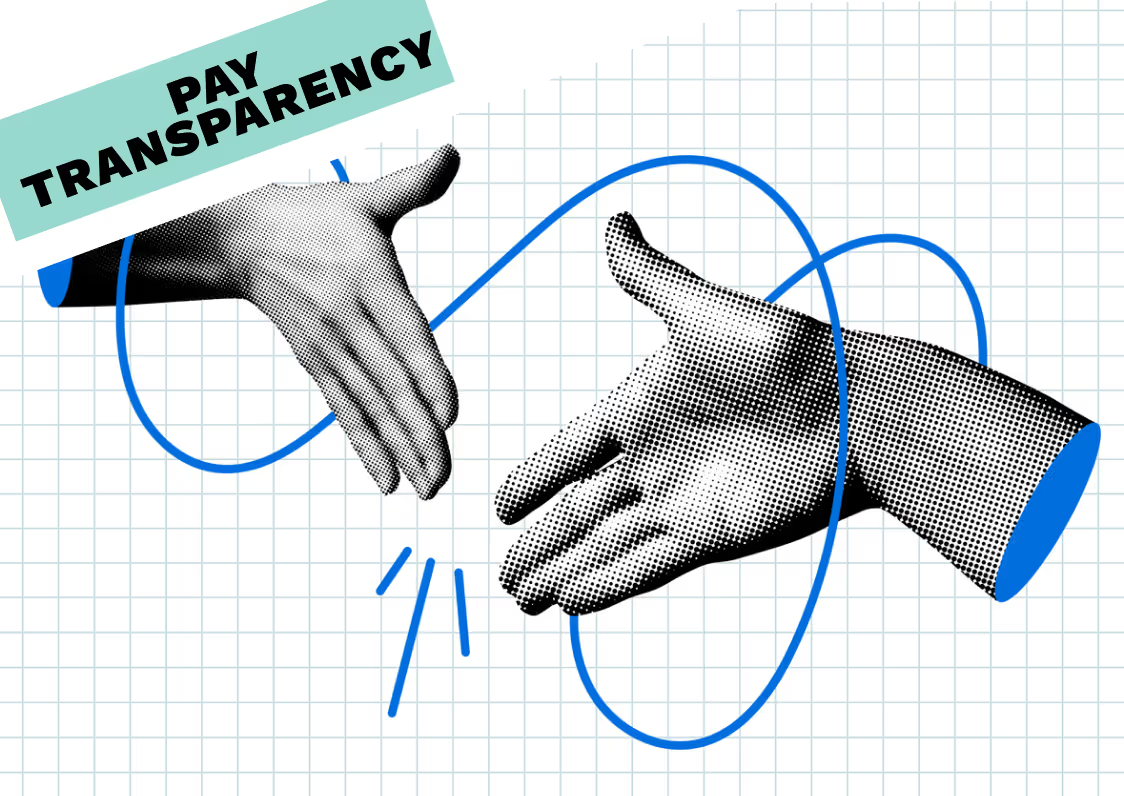Pay transparency is a big deal in 2024. After all, there are now just over two years until the EU pay transparency directive comes into play in all 27 member states — and employers everywhere are starting to prepare.
Over the last few months, we’ve chatted about the current state of pay transparency in the UK and in France, as well as how the directive will impact those two countries. Today, we’re zooming in on another European neighbour: Germany.
Read on to find out about the current state of pay equity and transparency in Germany, including the laws that employers have to follow. We’ll also share some insights from our friends at Personio, an HR software platform headquartered in Munich, on how 2000+ German employees really feel about pay transparency in 2024.
The current state of pay equity and transparency in Germany
Before diving into the ins and outs of German employment law, let’s take a quick look at the pay equity landscape in Germany in 2024.
What is the gender pay gap in Germany?
According to the latest OECD data, the gender pay gap in Germany is currently 13.5%. To put this in context, that’s a little bit higher than the gap in France (11.6%) and the OECD average (12.1%), but lower than the UK (14.5%). The average across the EU is currently 10.8%.
Pay transparency in job ads
Whether or not employers include salary information in their job ads is an important element of pay transparency. As we’ve discussed before, providing this information sends a message to candidates that you care about fair pay. It also saves time for everyone by weeding out candidates with unrealistic salary expectations early in the process.
So, what’s the situation in Germany? Well, there’s good news and bad news.
A 2023 report from Indeed Hiring Labs found that more than 20% of German job ads included salary information in March 2023, compared to just 2% in January 2019. This is a pretty impressive increase — but Germany is still lagging behind its closest neighbours in this area.
For comparison, the number of job ads containing salary info in March 2023 was 49.5% in France, 48.4% in the Netherlands and 72.1% in the UK. Meanwhile, a 2022 white paper from Adzuna ranked Germany as the 16th country out of 19 for salary transparency in job ads.
To sum up, Germany has made a lot of progress over the past few years — but there’s still work to be done.
What the law says
The main piece of legislation covering pay transparency in Germany is the Transparency in Wage Structures Act, or Entgelttransparenzgesetz, which was introduced in 2017.
The act explicitly forbids employers from directly or indirectly discriminating against employees on the grounds of gender with regards to pay. It supplements the rules set out in the Allgemeines Gleichbehandlungsgesetz, Germany’s general anti-discrimination law, which came into play in 2006.
We’ll discuss some of the specific rules that German employers need to be aware of below.
Reporting obligation for large employers
Employers in Germany with more than 500 employees are required to report regularly on the measures they’re taking to ensure equal pay between men and women, and the results of those measures (i.e. the company’s gender pay gap).
If an employer has a collective bargaining agreement in place, they have to produce a report every five years, and all other employers are required to do it every three years. The report should be included in the company’s management report, and published in the Bundesanzeiger, an official publication of the German government.
Employee rights to information
The act also grants employees of organisations with at least 200 employees the right to request certain information about how their compensation compares to their colleagues.
Specifically, they can ask for the criteria the employer uses to determine pay, and for the average gross monthly pay of all employees of the other gender who work in a comparable role. In this case, ‘gross pay’ includes base salary and two additional compensation components, which the employee can choose (for example, company cars or bonuses).
Employees can make these requests every three years, and their employer has three months from receiving the request to respond. However, employers only have to provide this information if there are at least six employees of the opposite sex working in equivalent roles.
Voluntary review of pay structures
Private employees in Germany with more than 500 employees are strongly encouraged to regularly review their compensation structures and make sure they’re set up to promote fair pay. However, this is not required by law.
Rebuttable presumption of discrimination
According to Section 22 of the German General Equal Treatment Act (Allgemeines Gleichbehandlungsgesetz or AGG), when a female employee is found to be earning less than a male colleague in an equivalent role, the legal presumption is that this is due to discrimination. It’s then up to the employer to prove that this is not the case.
For example, in a 2023 case, the German Federal Labour Court (Bundesarbeitsgericht or BAG) didn’t accept an employer’s claim that a disparity between two employees was simply because the male employee had negotiated their initial salary better than the female employee.
{{cta}}
Cultural attitudes towards pay transparency in Germany (with Personio)
As well as considering the laws at play, it’s important to think about the cultural attitude towards pay transparency in Germany. After all, in many countries, a reluctance to be open about compensation on the part of employees is one of the main barriers to full transparency.
Thankfully, we had help from our friends at Personio, who recently ran a survey of over 2000 employees in Germany to find out what they think. Here’s what they told us:
“Talking openly about salary is no longer a taboo in Germany. Our survey found that nearly half (47%) of the surveyed employees now talk more frequently about salary with colleagues than they did two years ago, and 41% would like to know how much others in the company earn.
In general, salary transparency is shown to be an important factor for employee satisfaction and engagement. They want to be informed about salary bands and know their chances for a salary increase.”
The study also found that transparency has a positive impact on employee morale, with 39% of respondents saying that it made them perceive their employees as more appreciative, and 33% saying it led to an increase in trust in the workplace. 32% of the employees surveyed also believe that transparency leads to improved performance.
Why German employers should care about pay transparency
Personio’s study also showed that companies that do embrace transparency can see some pretty impressive results.
In companies that are described as ‘very transparent’, the following is true:
- 92% of employees are satisfied with their pay and salary
- 88% of employees are more productive
- 87% of employees are more motivated
Pay transparency could also help employees to meet their full potential: just under half (49%) of employees said that they would be more motivated to work towards a promotion if they had more clarity about their potential salary.
"Growth is an important motivator for employees. However, many want to know how their career and salary can grow with them. So it is important to transparently communicate to your employees about how they are paid, rewarded, or promoted," says Luke Sondelski, Director of Reward at Personio.
The challenges of pay transparency
Despite all of these positives, the survey also found that this new eagerness to talk about pay hasn’t necessarily translated to employers: only 40% of respondents said that their employers are transparent when it comes to compensation, bonuses or salary bands.
Personio admits that full pay transparency isn’t easy to pull off, even when employers would like to:
“This topic can be complex for employers: while it does promote more openness and clarification among the workforce, it can also create pressure or a sense of unfairness.
Employees may want more insight into salaries in the company, but they do not always feel comfortable sharing their own salary. After all, 40% say they would feel uncomfortable if colleagues knew their salary.”
Employers in Germany (and elsewhere) should be sensitive to this reticence before launching full steam into a push towards pay transparency.
The EU pay transparency directive: what will change in Germany?
The EU pay transparency directive will come into effect in all 27 member states, including Germany, by June 2026. And it will introduce some important changes to the way German companies handle compensation.
- Gender pay gap reporting threshold: Although Germany already has some pretty robust gender pay gap reporting requirements, the EU directive will up the ante. Instead of only applying to companies with 500+ employees (as is the case in Germany at the moment), the new rules will require all companies with more than 150 employees to report every three years. Those with 250 or more employees will have to report annually.
- Pay transparency in job ads: The directive also introduces a requirement for employers to provide at least a salary range to job candidates before the interview stage — which usually means they’ll have to include this info in their job ads. As we’ve seen, this is still a relatively rare practice in Germany — but that’s all about to change.
- Changes to employee information requests: Germany already has legislation that grants employees the right to request information about their colleagues’ pay — but the way this works will change in a few ways once the directive is in play. For example, the deadline for employers to provide this information will go down to two months instead of three, and employers will have to remind their employees of this right at least once a year.
- Wider definition of ‘pay’: At the moment, the information German employees can request on their colleagues is limited to the average base salary plus two other compensation elements, chosen by the employee. Under the directive, the definition of ‘pay’ will be broadened to include ‘any other consideration, whether in cash or in kind, which the workers receive directly or indirectly’.
Put simply, the way companies handle pay across the EU is about to change — and German employers need to be ready.
{{cta}}
Learn more about pay transparency in Germany and beyond
Want to find out more about the state of pay transparency in Germany? Personio's recent report (in German) is the best place to start. It’s based on a survey of more than 2000 German employees, and contains insights including:
- The benefits of transparency around pay, rewards and promotion
- The complexities of building transparent pay structures
- How pay transparency impacts performance
And, if you’d like to learn more about pay transparency in other countries or more generally, stick around! Here are some articles from our archive to get you started:
Summarize this article with AI
No time to read it all? Get a clear, structured, and actionable summary in one click.


![How Countries Are Implementing the EU Pay Transparency Directive [Updated December 2025]](https://cdn.prod.website-files.com/67d7e1e2f12d2942bb8d0309/6800da19bf0ad5c3d89c6d56_67e2c2cbef618bc98559ce0c_679b9fd8dac8fc3762b7e816_General%252520Topic.avif)



